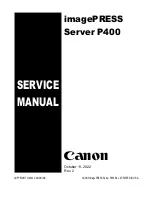
14
Chapter 3
Web Proxy Caching
Traffic Server applies
Cache-Control
servability criteria after HTTP freshness criteria. For example, a
document might be considered fresh, but if its age is greater than its
max-age
, it is not served.
Configuring HTTP freshness options
You can configure the following freshness guidelines for Traffic Server:
•
How often to revalidate (when to consider objects stale). See
Configuring HTTP revalidation‚ on page 14
.
•
Whether to cache documents without freshness information. See
Configuring HTTP cachability‚ on
page 14
.
•
The upper boundary used to determine if the Last-Modified /Date freshness limit is too long.
•
The absolute freshness lifetime used to estimate the freshness of documents without
Expires
or
Last-
Modified
headers.
In the
cache.config
file, you can configure Traffic Server to revalidate objects from specific origin servers
at specific times. Refer to
cache.config‚ on page 162
.
Configuring HTTP revalidation
The following HTTP revalidation options are available:
•
Always revalidate (everything is considered stale).
•
Never revalidate (everything is considered fresh).
•
Revalidate all objects without
Expires
headers. Evaluate the freshness of objects with
Expires
headers
by first checking the
Expires
header, and then checking
Cache-Control
headers.
•
Evaluate freshness as follows:
1. Use the
Expires
header test, if applicable, otherwise go to step 2. If the object is stale, revalidate. If
it is fresh, check the
Cache-Control
headers.
2. Use the
Last-Modified
/
Date
header test, if applicable, otherwise go to step 3. If the object is fresh
according to the
Last-Modified
/
Date
test, check the
Cache-Control
headers for any freshness
restrictions.
3. Use the absolute freshness limit specified in the Freshness section of the Configure: Cache page.
Revalidate if the age is past the freshness limit.
Configuring HTTP cachability
The following HTTP cachability options are available:
•
Cache only documents that have
Expires
headers
•
Cache only documents that have
Expires
or
Last-Modified
headers
•
Do not restrict caching
Caching HTTP alternates
Some origin servers answer requests to the same URL with a variety of objects. The content of these objects
can vary widely, according to whether a server delivers content for different languages, targets different
browsers with different presentation styles, or delivers variable content at different times of the day. Different
versions of the same object are called alternates.
















































